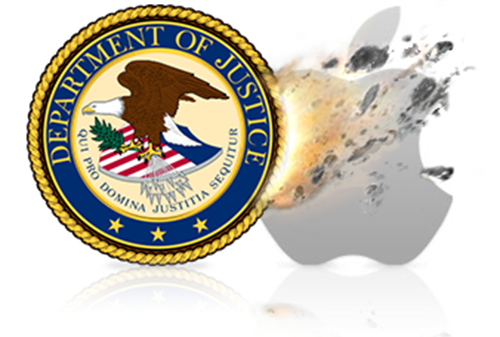 One of the things that bemuses me about the Apple antitrust trial is the polarization you get from observers of the case. It seems like everyone (including, admittedly, me) either believes Amazon is a saint and Apple and the publishers are the devil, or vice versa. Nowhere is that more clear than in the coverage of the hearing today on whether to stay the external compliance monitorship. Depending on who you read, either “Apple gain[ed] no sympathy” at the hearing (WSJ, paywalled; get around it with Google News) or “The odds are in Apple’s favor today” (Fortune, with Apple partisan Philip Elmer-Dewitt). That’s two essentially opposing takes on the exact same hearing. What?
One of the things that bemuses me about the Apple antitrust trial is the polarization you get from observers of the case. It seems like everyone (including, admittedly, me) either believes Amazon is a saint and Apple and the publishers are the devil, or vice versa. Nowhere is that more clear than in the coverage of the hearing today on whether to stay the external compliance monitorship. Depending on who you read, either “Apple gain[ed] no sympathy” at the hearing (WSJ, paywalled; get around it with Google News) or “The odds are in Apple’s favor today” (Fortune, with Apple partisan Philip Elmer-Dewitt). That’s two essentially opposing takes on the exact same hearing. What?
What I’m seeing from these and other articles (Washington Post) is that the appeals court seemed to be skeptical all around (Apple Insider). Which is pretty much the function of appeals courts. They were skeptical of Apple’s claims that it would suffer “irreparable damage” as a result of the monitorship—because being out a bit of extra money from the cost of the monitor’s fees is hardly “irreparable,” especially for one of the richest corporations in the world. They were also skeptical of monitor Michael Bromwich’s breadth of powers to request interviews and documents, suggesting that it might not be sufficiently reined in by Cote’s instructions, and wanted to know why he needed to start right away.
The judges suggested a potential compromise in which they could craft new orders putting tighter restraints on monitor Michael Bromwich’s powers, limiting him to requesting documents and interviews specifically pertaining to his antitrust monitoring duties. From the WSJ report:
Even if the court crafted such an order, Apple would still oppose Mr. Bromwich’s appointment as an unwarranted intrusion, [Apple lawyer Theodore] Boutrous [Jr.] said. He pointed out that the Justice Department could monitor the company itself without enlisting a private party who has a financial incentive to enlarge his role.
"The government has other things to do," Judge Guido Calabresi said.
Between that and Judge Gerard Lynch’s comment, "Maybe if [Apple’s executives] had spent some of their very valuable time keeping the company from violating antitrust laws, perhaps they wouldn’t be in this position," I don’t get the feeling there’s much more sympathy for Apple in this court than there was in Cote’s.
The Justice Department suggested such an order would be unnecessary as the limits were already there in Cote’s document. I’m not a judge or lawyer, but I have to agree with them. Page 13 of the order delineating Bromwich’s powers (PDF) says (emphasis mine) “The External Compliance Monitor may, in connection with the exercise of his or her responsibilities under this Section VI…” and then goes on to authorize him to interview any Apple personnel and request any documents necessary…with that clause I bolded applying to said interview or document requests. He can only request them “in connection with the exercise of his or her [antitrust compliance monitoring] responsibilities.” Which, he has stated, he was trying to do already.
That may well be why Apple said it would still object—it knows that such a reworded order from the court wouldn’t make any difference, since it would effectively contain exactly the same terms as the old order. Which would leave Apple in the same place, with Bromwich still wanting to interview its executives.
The appeals court hadn’t issued any decisions at the time I wrote this. I’ll either update this article or write a new one when they do.































It all boils down to the question of what’s the fair thing to do under the circumstances. With an appeal in progress, is it not better for the court to suspend anything that might constitute an irreversable outcome? Money may not be in short supply at Apple but there’s much more to it than that. There’s Apple’s legendary secrecy and valued brand. There’ s also the prospect of the appeal being decided against Apple due to information gleaned via the compliance monitor. That would certainly tarnish the brand image. No surprise that Apple is resisting with all its might.